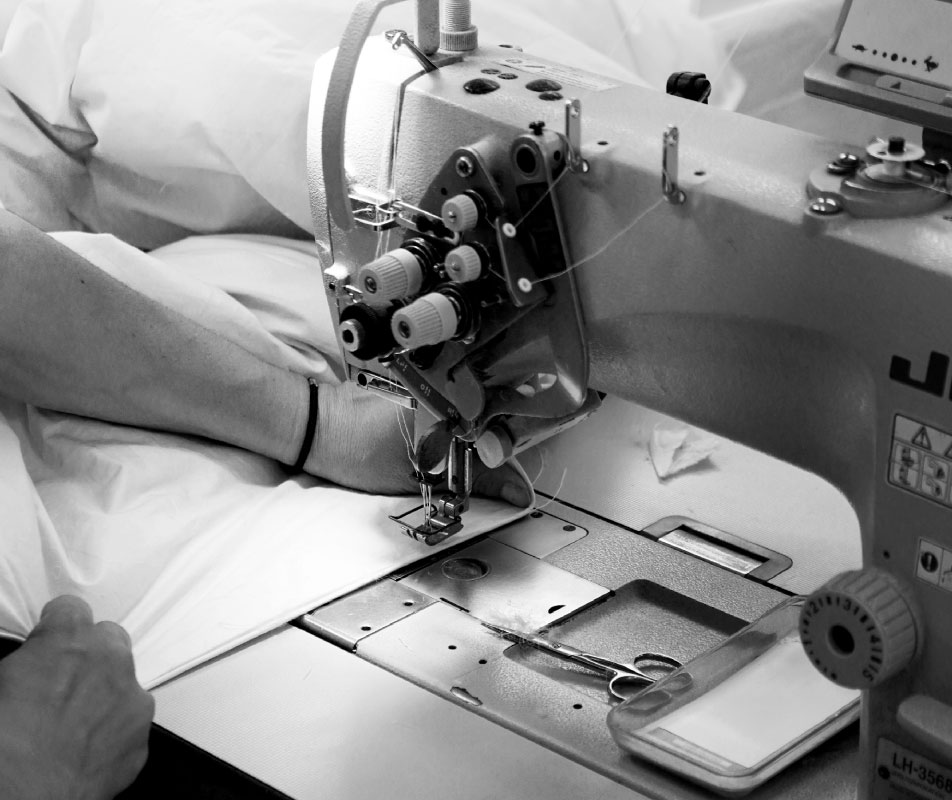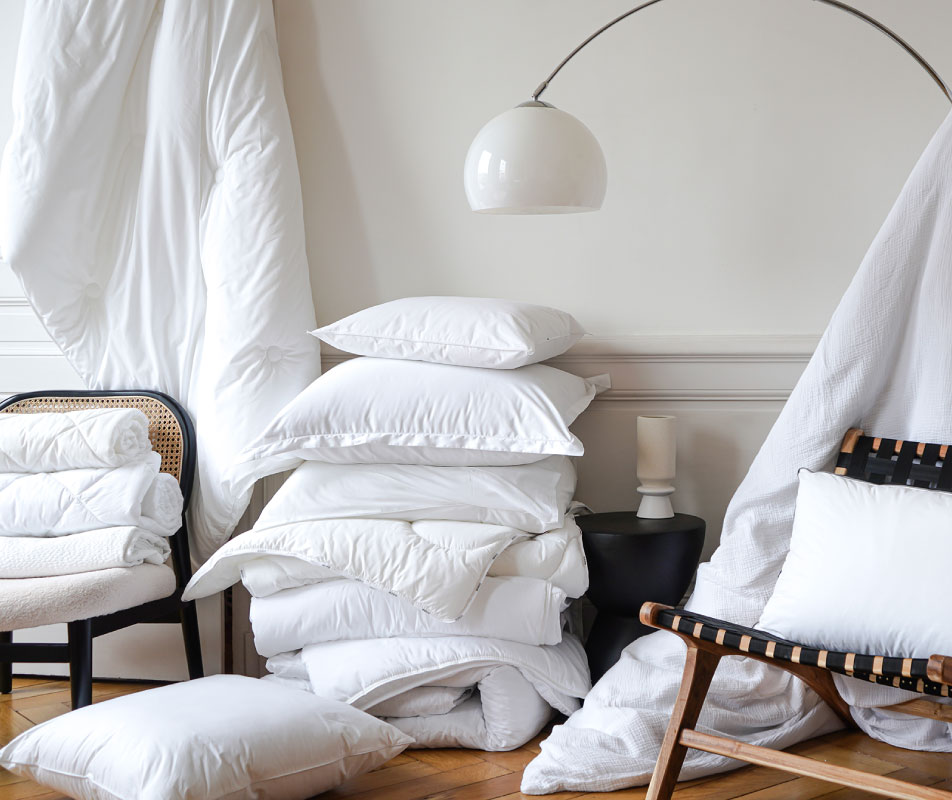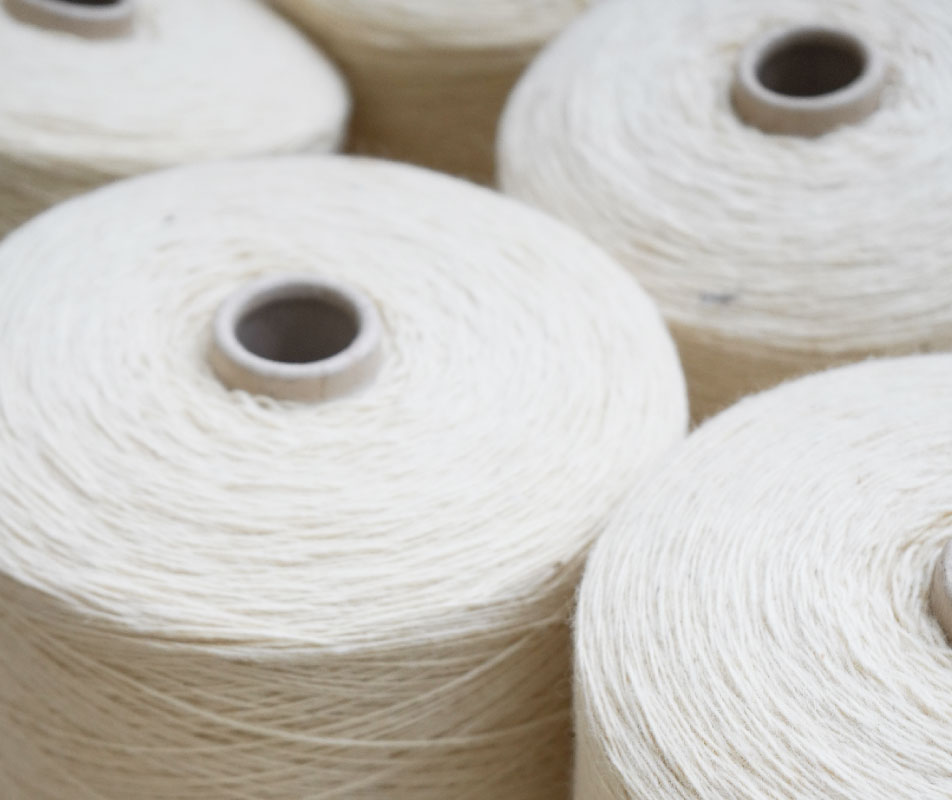A SUSTAINABLE
COMMITMENT
Since its establishment in 1937, Dodo has placed respect for human rights and the defense of local manufacturing in France at the heart of its development strategy. HOME HERITAGE continues to pursue this commitment today.

Since its establishment in 1937, Dodo has placed respect for human rights and the defense of local manufacturing in France at the heart of its development strategy. HOME HERITAGE continues to pursue this commitment today.
Providing maximum comfort to as many people as possible.
More conscious than ever that the longevity of its operations will depend on the reduction of its impact, in 2020, HOME HERITAGE decided to go further and fully commit to a global corporate social responsibility (CSR) policy by joining the United Nations Global Compact. In a globalised and ethically sensitive textile sector, this membership is a way to reinforce a strong commitment to key issues such as human rights, labour rights, environmental protection, and the fight against corruption.
Buoyed by these initial commitments, the family-owned group has decided to embark on a forward-looking and ambitious CSR strategy that encompasses both social and environmental aspects.
To address the ecological and social challenge, we consulted our stakeholders and set up a CSR committee to steer the CSR action plans defined jointly with the Group's senior management.
Home Heritage has therefore formalised its CSR strategy , called re∙generation, driven by a rationale of continuous improvement, which is intended to be a long-term commitment, based on three key principles.
∙

promoting our expertise
While the textile industry is largely offshore, the group is committed to manufacturing locally in France and reviving areas affected by job losses. Being part of the Home Heritage adventure means being driven by a strong drive to serve our customers in the best possible way. That's why we are committed to :
→ Guaranteeing the health and safety of employees and promoting quality of life at work.
We attach great importance to the safety and development of our employees, to whom we owe our success. Our management system focuses on risk prevention, employee protection and safety at work. We make a point of ensuring that the working environment and conditions are supportive of our teams' well-being, motivation and cohesiveness.
→ Promoting the textile professions and ensuring that know-how is passed on
As a major economic player with operations in various départements (Moselle, Vosges, Sarthe, Nord, Rhône, etc.), we are keen to make a long-term commitment to local employment by continually investing in our production facilities and developing ambitious training projects to address the shortage of certain skills (sewers, cutters, feather and down experts, warpers, etc.). More and more trainees and apprentices are being welcomed to foster future talent.


responsible offer
→ Innovating to produce more sustainable products that are not harmful to health and have a smaller impact on the environment.
Faced with growing environmental challenges, it is essential to offer consumers increasingly ethical products. This is why work has been underway for several years to develop ranges that include recycled materials, such as quilts and pillows made from recycled fibres and/or natural recycled fillings.
Similarly, we use natural materials that have a limited impact on resources and biodiversity, such as organic cotton, linen, or anti-dust-mite treatments made from 100% natural active ingredients such as neem extract and linseed oil. Today, brands almost exclusively offer products labeled OEKO-TEX® STANDARD 100, a quality seal that guarantees the absence of toxic substances to protect the health of customers and workers.
In 2021, certain packaging was switched to recyclable, reusable plastic or cardboard. Partnerships have been set up to monitor the end-of-life of products and encourage recycling through initiatives in shops.
We are actively working to implement eco-design approaches to reduce our environmental impact.


sustainable industry
We are committed to fostering sustainable relationships with our suppliers and other stakeholders. We make sure that they share our values and our sense of ethics.
→Building rigorous, long-term partnerships based on trust.
→ Mobilising and supporting our suppliers to develop a supply chain that is more respectful of people and nature.


While we are keen to make progress regarding the commitments we have undertaken, we are also well aware that much remains to be done. HOME HERITAGE is fully focussed, along with all its suppliers and partners, on improving practices and finding solutions to the social and environmental challenges facing the textile sector. Together we determine our priority issues, guided by a clear and ambitious roadmap.